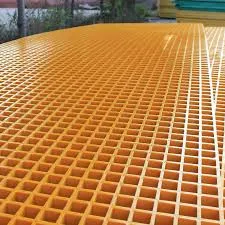
-
 Afrikaans
Afrikaans -
 Albanian
Albanian -
 Amharic
Amharic -
 Arabic
Arabic -
 Armenian
Armenian -
 Azerbaijani
Azerbaijani -
 Basque
Basque -
 Belarusian
Belarusian -
 Bengali
Bengali -
 Bosnian
Bosnian -
 Bulgarian
Bulgarian -
 Catalan
Catalan -
 Cebuano
Cebuano -
 China
China -
 China (Taiwan)
China (Taiwan) -
 Corsican
Corsican -
 Croatian
Croatian -
 Czech
Czech -
 Danish
Danish -
 Dutch
Dutch -
 English
English -
 Esperanto
Esperanto -
 Estonian
Estonian -
 Finnish
Finnish -
 French
French -
 Frisian
Frisian -
 Galician
Galician -
 Georgian
Georgian -
 German
German -
 Greek
Greek -
 Gujarati
Gujarati -
 Haitian Creole
Haitian Creole -
 hausa
hausa -
 hawaiian
hawaiian -
 Hebrew
Hebrew -
 Hindi
Hindi -
 Miao
Miao -
 Hungarian
Hungarian -
 Icelandic
Icelandic -
 igbo
igbo -
 Indonesian
Indonesian -
 irish
irish -
 Italian
Italian -
 Japanese
Japanese -
 Javanese
Javanese -
 Kannada
Kannada -
 kazakh
kazakh -
 Khmer
Khmer -
 Rwandese
Rwandese -
 Korean
Korean -
 Kurdish
Kurdish -
 Kyrgyz
Kyrgyz -
 Lao
Lao -
 Latin
Latin -
 Latvian
Latvian -
 Lithuanian
Lithuanian -
 Luxembourgish
Luxembourgish -
 Macedonian
Macedonian -
 Malgashi
Malgashi -
 Malay
Malay -
 Malayalam
Malayalam -
 Maltese
Maltese -
 Maori
Maori -
 Marathi
Marathi -
 Mongolian
Mongolian -
 Myanmar
Myanmar -
 Nepali
Nepali -
 Norwegian
Norwegian -
 Norwegian
Norwegian -
 Occitan
Occitan -
 Pashto
Pashto -
 Persian
Persian -
 Polish
Polish -
 Portuguese
Portuguese -
 Punjabi
Punjabi -
 Romanian
Romanian -
 Russian
Russian -
 Samoan
Samoan -
 Scottish Gaelic
Scottish Gaelic -
 Serbian
Serbian -
 Sesotho
Sesotho -
 Shona
Shona -
 Sindhi
Sindhi -
 Sinhala
Sinhala -
 Slovak
Slovak -
 Slovenian
Slovenian -
 Somali
Somali -
 Spanish
Spanish -
 Sundanese
Sundanese -
 Swahili
Swahili -
 Swedish
Swedish -
 Tagalog
Tagalog -
 Tajik
Tajik -
 Tamil
Tamil -
 Tatar
Tatar -
 Telugu
Telugu -
 Thai
Thai -
 Turkish
Turkish -
 Turkmen
Turkmen -
 Ukrainian
Ukrainian -
 Urdu
Urdu -
 Uighur
Uighur -
 Uzbek
Uzbek -
 Vietnamese
Vietnamese -
 Welsh
Welsh -
 Bantu
Bantu -
 Yiddish
Yiddish -
 Yoruba
Yoruba -
 Zulu
Zulu
fiberglass grating
The Advantages of Fiberglass Grating
Fiberglass grating has emerged as a popular choice in various industries due to its unique properties and advantages. This innovative material is made from composite resins and glass fibers, which together create a robust and lightweight structure. Its versatility makes it suitable for numerous applications, ranging from industrial settings to architectural designs.
One of the most significant benefits of fiberglass grating is its corrosion resistance. Unlike traditional steel or aluminum grating, fiberglass does not rust or corrode when exposed to harsh chemicals or extreme weather conditions. This makes it an excellent choice for use in environments such as chemical processing plants, sewage treatment facilities, and coastal areas where exposure to saltwater is common.
Another advantage of fiberglass grating is its lightweight nature. Compared to metal alternatives, fiberglass grating is significantly lighter, which simplifies transportation and installation processes. This factor contributes to lower labor costs and makes it easier to handle, especially in large projects where heavy materials could pose logistical challenges.
fiberglass grating

In addition to its practical advantages, fiberglass grating also boasts excellent slip resistance. The surface of fiberglass grating can be engineered to provide enhanced traction, reducing the likelihood of slips and falls in both wet and dry conditions. This feature is particularly crucial in industrial facilities, where worker safety is a top priority.
Moreover, fiberglass grating offers exceptional durability and an extended lifespan. It can withstand heavy loads and impacts without compromising structural integrity. This resilience reduces the need for frequent replacements, translating to long-term cost savings for businesses.
Another noteworthy aspect of fiberglass grating is its aesthetic appeal. Available in various colors and finishes, it can be customized to suit different design preferences. This makes fiberglass grating suitable not only for functional applications but also for architectural uses, such as walkways and decorative features in public spaces.
In conclusion, fiberglass grating presents numerous advantages that make it a superior option compared to traditional materials. Its corrosion resistance, lightweight design, safety features, durability, and aesthetic flexibility make it an ideal choice for a wide range of applications. As industries continue to evolve, the use of fiberglass grating is likely to increase, reflecting its essential role in modern construction and manufacturing practices.









